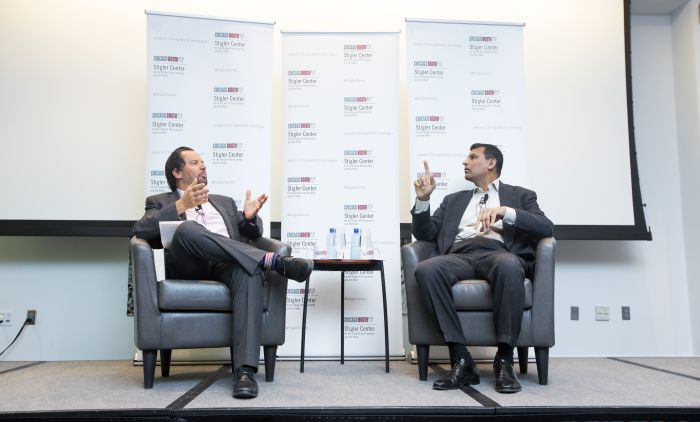In a recent Stigler Center conversation with Luigi Zingales, Rajan talked about his new book The Third Pillar and explained why today’s populists “are asking the right question” but providing only wrong answers.
Society, argues Chicago Booth professor Raghuram Rajan in his new book, is held up by three pillars: the state, the market, and the community. When these three pillars are balanced, as they were in the decades that followed World War II, liberal democracy thrives. But unforeseen developments, such as financial crises or technological revolutions, can throw this delicate equilibrium off balance, with the third pillar—community—often left far behind. The result: disillusion, widespread anger, and the rise of nativist populism.
The above scenario is very similar to the one liberal democracies today find themselves experiencing. The reason for liberal democracy’s current predicament, argues Rajan in The Third Pillar, is that while the societal pillars of markets and nation-states have been strengthened during the past few decades, communities have not. With rapid globalization and technological change, economic and political power has become increasingly concentrated. Peripheral communities were cast aside, and the delicate post-war balance between market, state and community broke down.
The solution, according to Rajan, is to empower and strengthen local communities and entrust local governments with more decision-making power. Rajan calls this “inclusive localism.”
In a recent Stigler Center conversation with Luigi Zingales, Rajan talked about his new book, and explained why today’s populists “are asking the right question” but providing only wrong answers.
Watch the full debate here:
Disclaimer: The ProMarket blog is dedicated to discussing how competition tends to be subverted by special interests. The posts represent the opinions of their writers, not necessarily those of the University of Chicago, the Booth School of Business, or its faculty. For more information, please visit ProMarket Blog Policy.






